-
87,000
The number of Rohingya refugees who have arrived in Bangladesh since Aug 25. Around 20,000 more are massed on the border, the UN said.400
The Myanmar authorities say this is the number of people, including 370 Rohingya militants, who have died in the latest violence. A further 54 Rohingya refugees have drowned while trying to make their way to Bangladesh, say Bangladeshi police.400,000
The number of Rohingyas in Bangladesh before the latest influx.11,700
The number of "ethnic residents", or non-Muslims, who have been evacuated from Rakhine.2,600
The number of houses thatMyanmar authorities say have been destroyed in Rohingya villages. Another 138 houses have been destroyed in non-Muslim villages.
World Focus
90,000 Rohingya flee violence in Myanmar
Humanitarian crisis looms as already limited aid comes under greater strain; leader Suu Kyi faces global anger
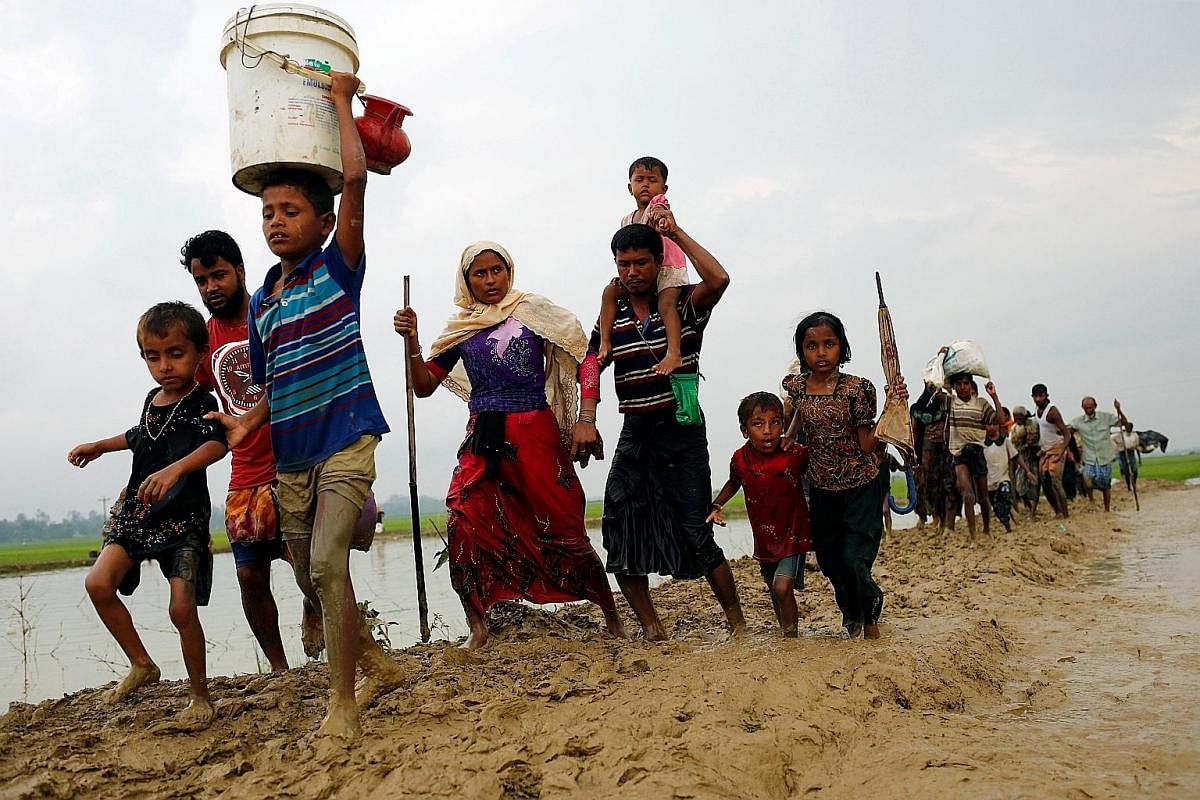
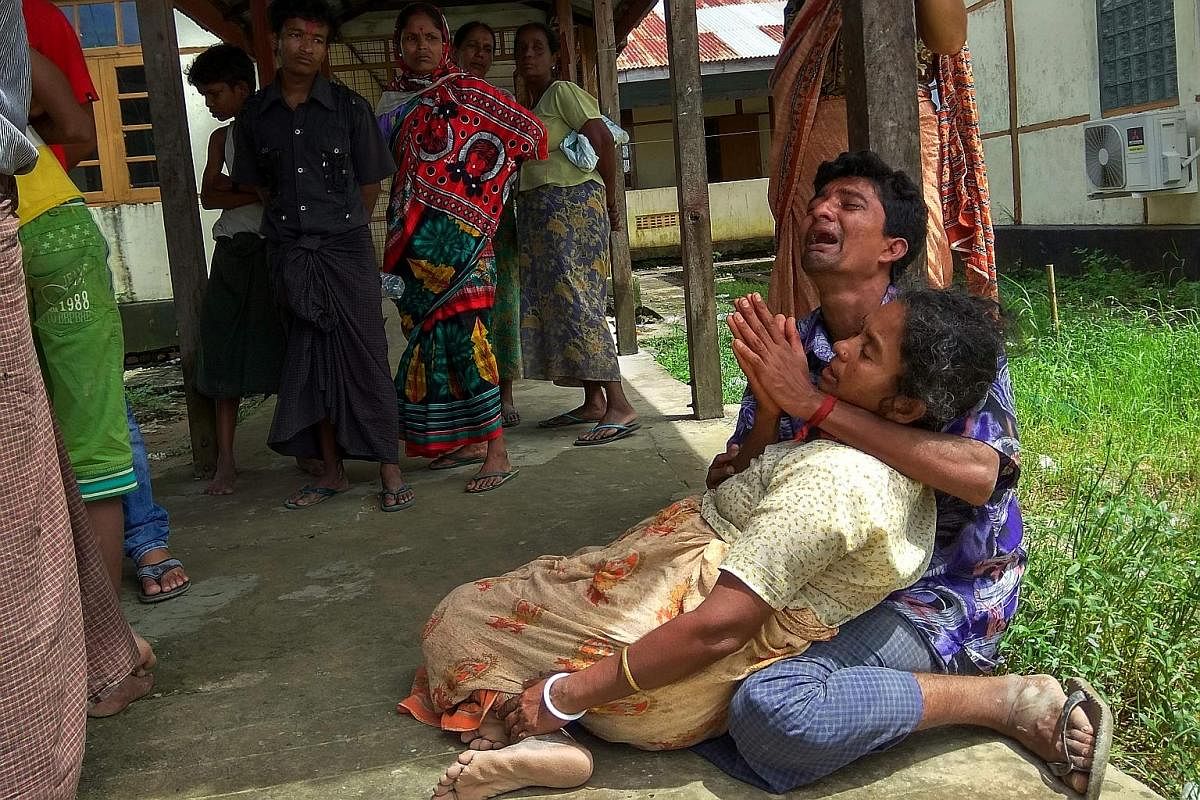
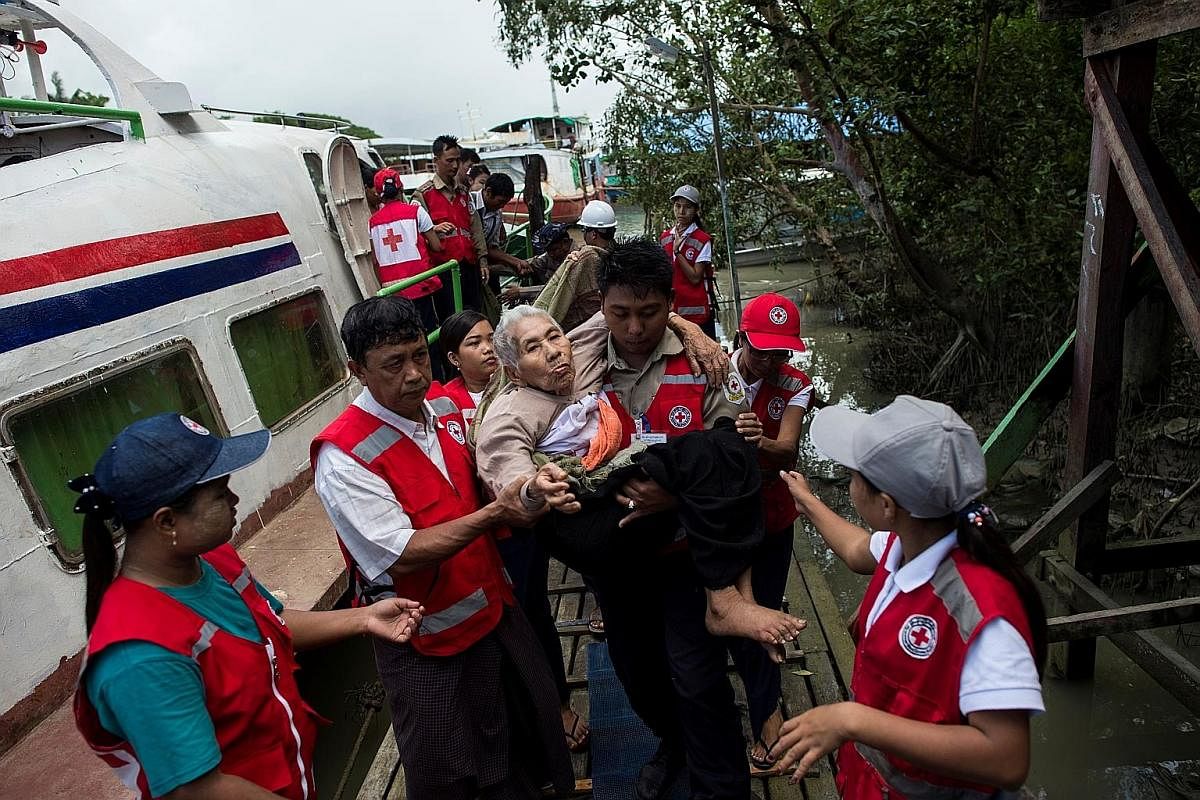
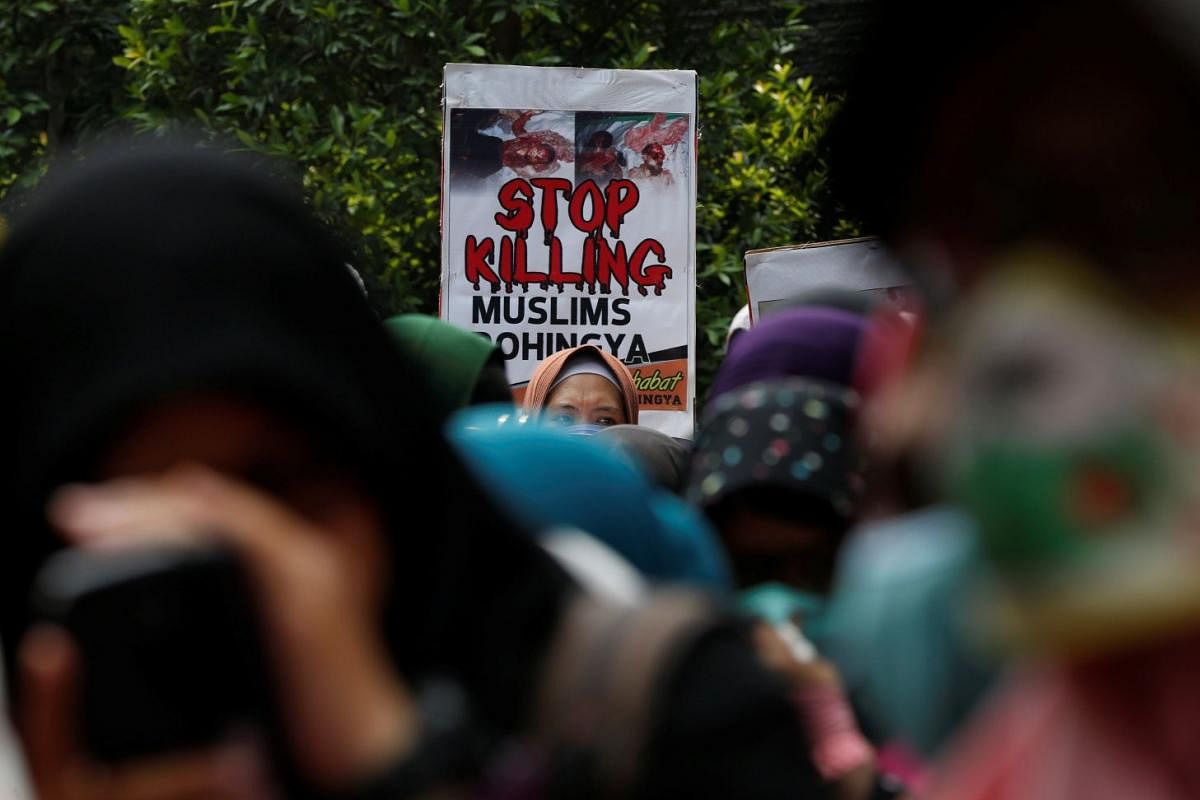
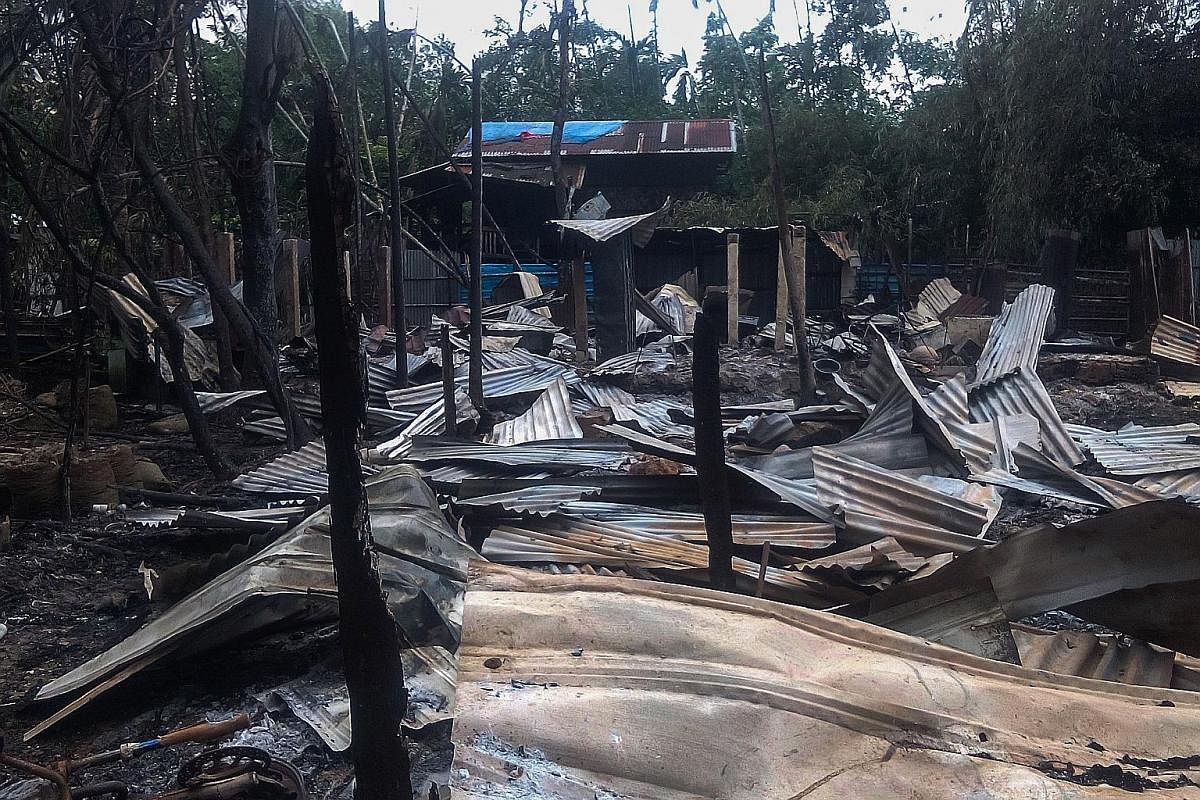
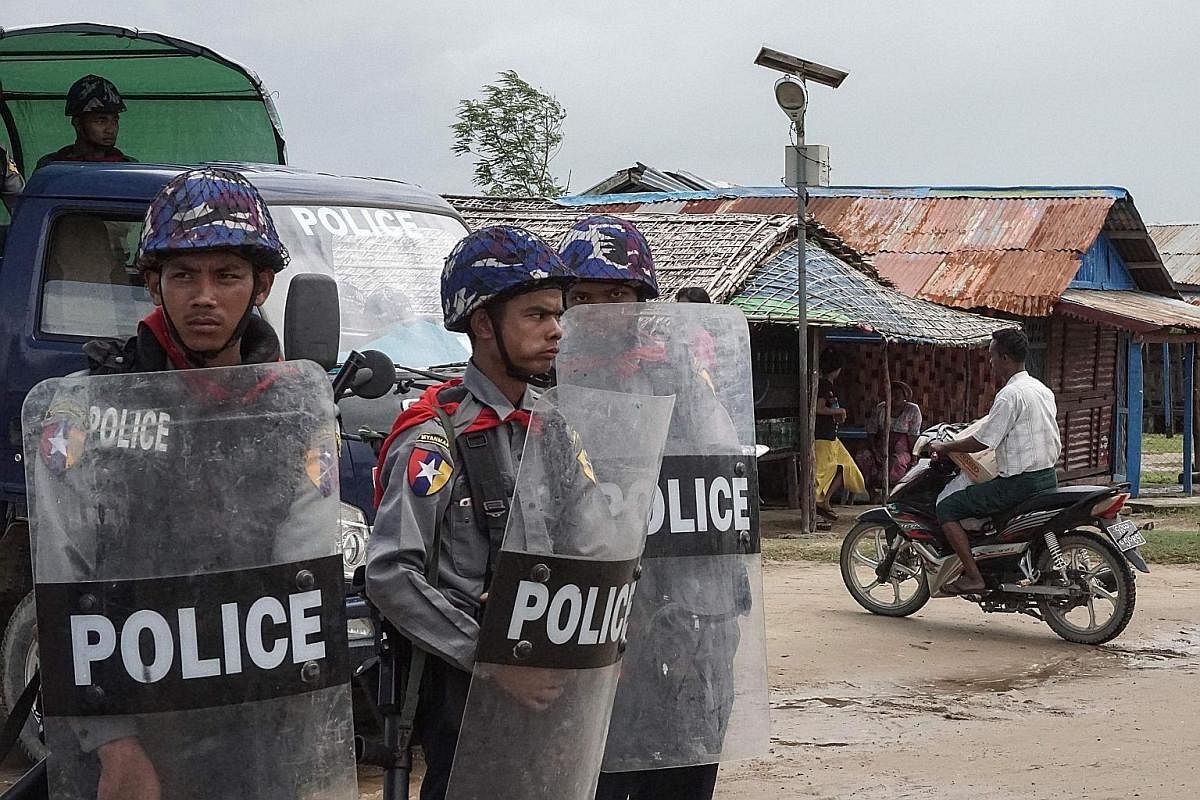
YANGON/COX'S BAZAR (Bangladesh) • Nearly 90,000 Rohingya have fled to Bangladesh since violence erupted in Myanmar last month, pressuring the scarce resources of aid agencies and communities already helping hundreds of thousands of refugees from previous violent episodes.
The bloodshed in Myanmar's western Rakhine state was triggered by an attack on Aug 25 on dozens of police posts and an army base by Rohingya insurgents. The ensuing clashes and a military counter-offensive have killed at least 400 people, including 370 militants, according to the army.
Yesterday, the office of Myanmar's de facto leader Aung San Suu Kyi said the military had fought 90 separate clashes with Rohingya militants since the ambushes.
In a statement, it said that more than 2,600 homes had been destroyed in Rohingya villages and 138 houses had been destroyed in non-Muslim villages - blaming the fires and other damage entirely on the militants.
Human rights monitors and Rohingya fleeing to neighbouring Bangladesh say the Myanmar army is trying to force the Rohingya out with a campaign of arson and killings.
Over the past five years, Rakhine has been divided along ethnic and religious lines, but the current violence is the worst yet.
The treatment of the roughly 1.1 million Muslim Rohingya in Buddhist-majority Myanmar is the biggest challenge facing Ms Suu Kyi, accused by the West as well as Muslim countries of not speaking out for the minority that has long complained of persecution.
The number of those crossing the border into Bangladesh - 87,000, based on calculations by United Nations workers - surpasses the number who escaped Myanmar after much smaller insurgent attacks in October last year set off a military operation.
Bangladesh officials have said at least 54 people have drowned trying to reach the country.
"No non-government organisations came here. We have no food. Some women gave birth on the roadside. Sick children have no treatment," said Mr Mohammed Hussein yesterday. The 25-year-old was still looking for a place to stay, four days after fleeing.
Most of the new arrivals have crammed into camps near the border, where the UN said local people were helping the relief effort.
Among new arrivals, about 16,000 are school-age children and more than 5,000 are under the age of five who need vaccine coverage, aid workers said over the weekend. The number of unaccompanied children is high and many are "traumatised and hungry", they said.
The UN special rapporteur for human rights in Myanmar, Ms Yanghee Lee, has criticised Ms Suu Kyi for failing to protect the Rohingya.
"The de facto leader needs to step in - that is what we would expect from any government, to protect everybody within their own jurisdiction," said Ms Lee.
Protests have broken out in Malaysia, Indonesia, Turkey and the Russian region of Chechnya over the Rohingya's plight, as anger grows among Muslims about violence against the group.
Yesterday, thousands gathered in Chechnya for an officially staged rally. On Sunday, a petrol bomb was thrown at Myanmar's embassy in Jakarta.
Malaysian Foreign Minister Anifah Aman also questioned Ms Suu Kyi's silence.
"Very frankly, I am dissatisfied with Aung San Suu Kyi," Mr Anifah told Agence France-Presse.
Indonesian President Joko Widodo has said his government is committed to defusing the humanitarian crisis. Foreign Minister Retno Marsudi met Ms Suu Kyi as well as Myanmar's army chief General Min Aung Hlaing in Naypyitaw yesterday to press for greater efforts to alleviate the crisis.
Indian Prime Minister Narendra Modi is expected to talk about the Rohingya issue too when he visits Naypyitaw today.
Turkish President Tayyip Erdogan and Iranian Foreign Minister Javad Zarif have called for UN intervention in Myanmar, saying that violence against the country's Muslims amounted to genocide and ethnic cleansing. And Pakistan urged the "authorities in Myanmar to investigate reports of massacre, hold those involved accountable and take necessary measures to protect the rights of Rohingya Muslims".
In addition to tens of thousands of Rohingya, more than 11,700 "ethnic residents" had been evacuated from Rakhine state, the Myanmar government has said, referring to non-Muslims.
Last Wednesday, ultra-nationalist monk Ashin Wirathu and hundreds of protesters rallied in Yangon for strong military action against the Rohingya for their alleged collusion with extremist groups.
REUTERS, AGENCE FRANCE-PRESSE, BERNAMA
Join ST's Telegram channel and get the latest breaking news delivered to you.
A version of this article appeared in the print edition of The Straits Times on September 05, 2017, with the headline 90,000 Rohingya flee violence in Myanmar. Subscribe

